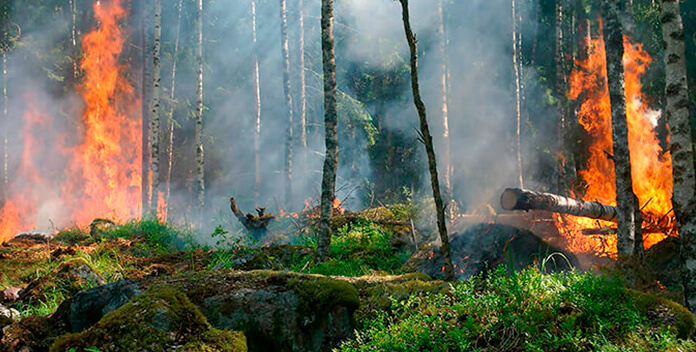
The challenges of reforestation in a burning world
Fecha: 15/08/2022
As summer arrives in Europe with record high temperatures, the number of wildfires has also dramatically increased.
In Spain, wildfires have destroyed over 69,859 hectares (almost 173,000 acres) since the beginning of the year; an increase of over 56% compared to the average for the last decade. In France, the wine-growing Gironde region saw its biggest wildfires in over 30 years. Meanwhile, Portugal, Belgium and Greece are also facing severe wildfires.
Sadly, the high temperatures and frequent droughts will have even more devastating consequences in the near future: According to a United Nations report, the number of extreme wildfires is expected to increase 30% within the next 28 years.
And although there are thousands of associations and initiatives actively trying to recover the forests we are losing, the truth is the road to reforestation is still bumpy and long.
Skilled labour
In an article for Fast Company, journalist Adele Peters explains that although there are 133 million acres of land ready to be reforested now in the United States, there aren’t enough seedlings available (around 68 billion) or the skilled labour needed to get the job done.
Time
From the gathering and preparation of the seeds until the moment they can be planted, the reforestation process is long and hard. The problem is we are working against the clock: according to the Intergovernmental Panel on Climate Change, we need to plant 1 billion hectares of forests to help limit global warming to 1.5° C by 2050.
Communities
In some countries the farming and hunting communities are skeptical about reforestation and rewilding initiatives. Mostly, because they fear these processes will take away land from the farmers; yet, if it is done right and in collaboration with locals, rewilding and reforestation efforts can create new job opportunities and restore the health of the land.
Finding answers in technology
Companies like Canadian startup Flash Forest recognize these challenges and are ready and willing to take them on - with the help of technology. Using UAV technology, automation and ecological science, Flash Forest is on a mission to plant one billion trees before 2028.
According to the company, their drones allow them to plant at 10 times the normal rate and at a fraction of the cost of traditional tree planting techniques. As their technology advances, 2 UAV operators will be able to plant 100,000 trees in a day (instead of the 1,500 one person could plant in the same amount of time).
With technological advantages like the one Flash Forest is working on, we might finally be able to keep up with the growing deforestation rate: 13 billion trees are lost each year all over the world, and we are currently replanting less than half of that amount.
